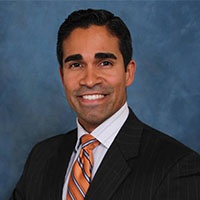 Middletown Felony Lawyers, New York
Middletown Felony Lawyers, New York
Sponsored Law Firm
-
 x
x

Click For More Info:
-
Kevin T. Conway
664 Chestnut Ridge Rd Spring Valley, NY 10977» view mapCriminal Defense Experience You Can Trust
Kevin T. Conway uses an individualized approach to make sure your case gets the attention it deserves.
800-741-3561
Sponsored Lawyers
1-6 of 6 matches
Criminal, DUI-DWI, Felony, Misdemeanor, Traffic
Angel I. Falcon is a Dutchess County based general practice catering to the legal needs of individuals and businesses in the Hudson Valley and surrounding areas.
(more)Criminal, DUI-DWI, Felony, Traffic
Kevin T. Conway is a local criminal attorney practicing in the field of criminal law. Attorney Conway have over 30 years of experience representing clients through a variety of legal issues. He is licensed in the states of New York, New Jersey, and Connecticut. Mr. Conway maintain local offices in Rockland County and Bergen County routinely appearing and handling all types of criminal cases, including Rockland and Bergen County DWI, in the Superior, County, Justice, and Borough Courts. Kevin T. Conway previously served as the county-wide DWI prosecutor, personally handling the responsibility and oversight of all DWI-related offenses, both misdemeanor and felony, as well as vehicular manslaughter and vehicular assault DWI-related cases. This background has provided him with invaluable experience to assist clients facing criminal or DWI offenses in New York, New Jersey or Connecticut. Attorney Conway regularly appears in the courts in New York, New Jersey, and Connecticut. He maintains a good professional working relationship with the prosecutors and the judges in Rockland and Bergen Counties which allows him to effectively represent your interests in court.
(more)


 Kevin Conway Spring Valley, NY
Kevin Conway Spring Valley, NY AboutKevin T. Conway
AboutKevin T. Conway Practice AreasExpertise
Practice AreasExpertise


